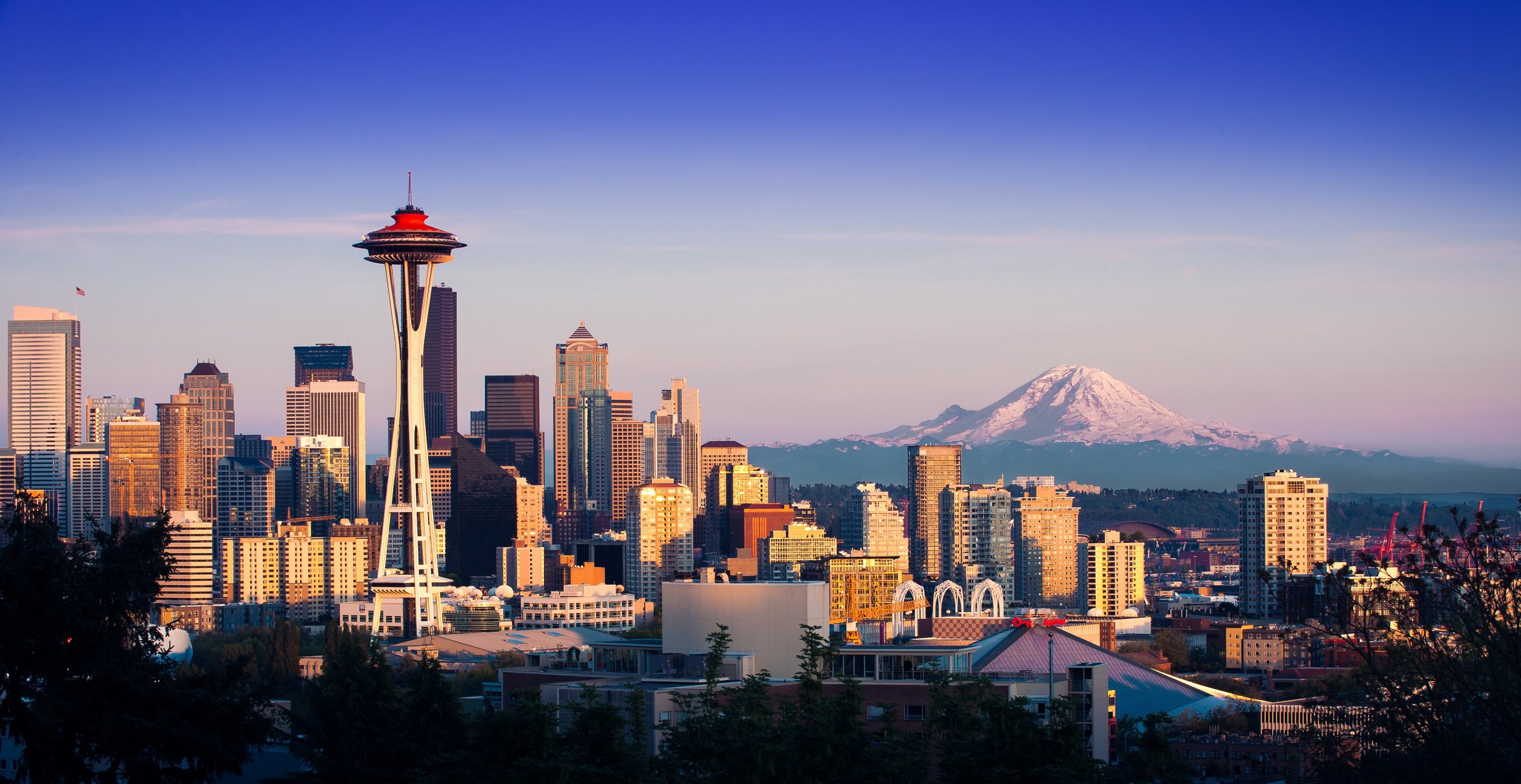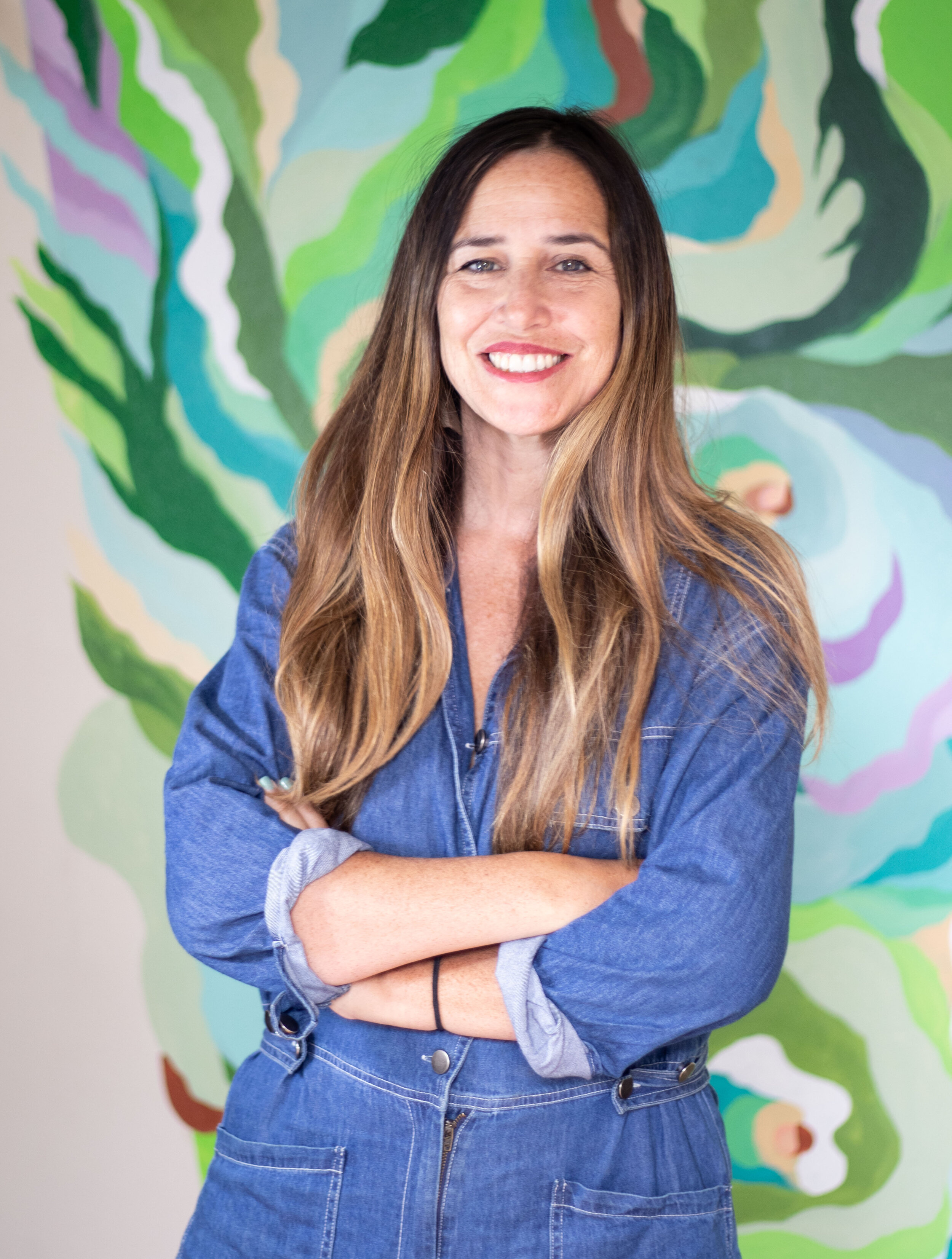
Meet our Fellows
Coté Soerens, Seattle, Washington
Cultivate South Park
Coté Soerens: Reconnect South Park
Seattle, Washington
Community Building through Coffee
Coté Soerens calls herself a midwife to a thriving local coffee shop that has become a hub for community organization and activism. Living in the South Park neighborhood of Seattle, Washington, a community filled with immigrants and people of color where opportunities are limited, Soerens felt called to create spaces of belonging.
“South Park is a neighborhood that has been affected by racialized zoning. We're a redlined neighborhood. So that has impacted access for people in the neighborhood - from education to a good environment to quality of air. We have the Lower Duwamish River which is a superfund site. We’re an immigrant neighborhood. It’s a POC neighborhood with low access to opportunity and a high risk of displacement - and it is in danger of becoming gentrified. There’s no place for youth to hang out.”
“When I first moved to South Park, I noticed that the neighborhood had challenges, but it also had a lot of really great things about it. There's a high level of civic energy in this neighborhood. It's been called a mile of resistance. People here really are big on mutual aid – but there’s no one to tell the story.”
Soerens began to work to create space for community gathering. In 2017, while hosting a dinner for neighborhood friends, Soerens realized that, even without secured funding, she had all she needed to create a local coffee shop, where local youth could find employment and where neighbors could meet to discuss local issues and organize.
“For a few years now, I have been invested in creating more spaces of belonging. And then in 2017, It hit me almost like lightening, like a vision. I got a shot from the Spirit saying ‘I need you to open a space from where you can mother the neighborhood. And don’t worry about the money.”
“Opening anything retail in Seattle these days is very difficult – and I did not have money to do this. However, I looked around the table as we were hosting a neighborhood dinner and I realized we had everything we needed to make this happen. I basically connected all of these assets in the neighborhood. I don't like to say that I'm the owner of the coffee shop, I like to say that I am the midwife of Resistancia coffee. We did it all.”
The coffee shop quickly became a beloved hub for the neighborhood. “We were really invested in this not being a ‘hip’ coffee shop, but really communicated to everyone in the neighborhood that this place is for you. We hired locally. We are really changing the face of the barista industry, because it's been usually male and usually white. But we hired people who grew up in this neighborhood. So we have a lot of youth of color being trained as baristas and they are excellent baristas.”
“The coffee shop is named ‘Resistencia Coffee’ because that is what the Gospel means to me. It is our definition of resistance – “a local community standing up against adversity with relentless hope and care for everyone in the neighborhood.”
Resistencia Coffee is more than just a coffee shop. Neighborhood initiatives have been planted and nurtured as neighbors met for coffee. “My intention was to create a ‘garden bed’ where plants could grow. It's a physical space and other plants grew out of that.”
“We co-founded Cultivate South Park, which is asset-based community development. I’m also fostering a faith community, because this work is rooted in the Creator’s work in our neighborhood. How can we be the hands and feet of Jesus in this neighborhood?”
Under the Cultivate South Park umbrella, other plants flourished as well.
One of the plants that grew out of the garden was Urban Fresh Food Collective. “South Park is a food desert. During the pandemic, neighbors fed people out of the coffee shop, where we were hosting a food bank. Resistencia Coffee fed 375 families, 3 days a week for a year.”
Another seedling was the South Park Arts and Culture Collective. “We started hosting open mics in the coffee shop. The arts collective is a great network of artists of color who live in the neighborhood and care about the neighborhood. We work on shifting the imagination toward the neighborhood.”
About Coté Soerens
Born in Chile, Soerens came to the US at 25 to pursue a master’s degree in counseling, but her heart has always been in ministry.
“Ever since I have memory, I’ve felt called to ministry, but women could not be in ministry in Chile, no matter your religion. When I was a little kid, I wanted to be a nun when I grew up. I was Catholic. Then, I wanted to be a missionary. I’ve always had an impulse to bring people together around the arts. But I wasn't really able to find myself in any of the models that I had around me. So that led me into a detour into psychology – and that’s how I ended up in the States doing a master’s in counseling.”
Soerens worked in the counseling field for 10 years doing organizational development and then private practice. She used her training plus her fluency in Spanish to specialize in forensic psychological assessments for immigration proceedings, which gave her “an incredible window into what immigrants face in their journey and into immigration policy”. Then, she felt called to make a change.
“There was a calling to make room in my life to actually operate as a pastor. And that came with a call to open a space in the neighborhood from where you can gather the neighborhood. And that became Resistencia Coffee”
Soerens, along with the neighborhood, has even bigger dreams. The Reconnect South Park dream is to ultimately decommission the highway which cuts the neighborhood in half and to reclaim those 44 acres for equitable development.
“In this very small neighborhood, as in many neighborhoods like mine, there is a highway cutting this neighborhood in two. We’re surrounded by industrial land and our biggest foe is the industry lobby. The river is polluted and it’s right next to every place where kids play – elementary school, the library, and the community center.”
“There's a whole movement across the country to turn highways into boulevards. What we're working on right now is to organize the neighborhood around the idea of decommissioning this highway, this portion of 99, and reclaiming 44 acres for equitable development.”
“We have a dream of a neighborhood where neighbors feel they have agency over the life of the neighborhood. This has been done in other communities, like Boston. What if we had 40 acres owned by a neighborhood-controlled Land Trust, with opportunities for wealth creation for people who haven't had the chance before? It's such a big dream. It's a scary big dream, which is a worthy dream.”
An additional dream is to purchase buildings in order to create tenant owners and spaces of belonging in the community. “There are a lot of multi-family buildings in this neighborhood where Spanish-speaking, first generation immigrants live that are now for sale. This used to be a gang-ridden neighborhood back in the early 2000’s. These moms and abuelitas have worked really hard to make this neighborhood safe so that families like mine can come and live here. So I think that it's not fair for them to be displaced. They have invested in this place.”
Soerens emphasizes that her work is within the broader world of faith and community building. “We are within the context and the movement around both asset-based community development, play space, church planting and community faith and engaging in the common well-being of the neighborhood. We're kindred spirits with others around the country trying to identify gifts in the neighborhood, and to connect them, celebrate them. We live with a view on creating more equitable neighborhoods.”
“Resistencia Coffee was this experiment on what happens when you give South Park the opportunity to succeed. And also, at the same time, Resistencia Coffee has been a love letter to South Park. And people have resonated with that. It's become a quite an important place for many people. And that is really, that's a huge responsibility.”






